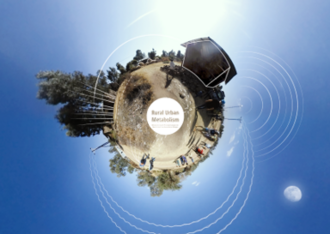
Rural Urban Metabolism
Design Studio, Summer 2018
In this studio we aim at developing methods for anticipating urban metabolisms in the development of rural towns in Ethiopia.
The transformation from a mainly agricultural society to industrialisation that is faced these days in Ethiopia is linked to substantial changes of the country’s rural and urban areas. With these shifts, the processes of urbanisation and expectations towards modernisation is seen as a chance to create new and adaptive urban planning proposals that meet specific needs and conditions of the Ethiopian development context in Sub-Saharan Africa. While the World Bank is promoting rapid economic growth for Ethiopia, still the country is one of the poorest countries in the world, and the question arises in how far urban design and planning can create concepts and flexible urban models that are reactive enough to stimulate different scenarios responding for balanced development.
One of the main frameworks to create such balance for emerging cities are the United Nations Sustainable Development Goals. Different key factors like food security, energy, water and sanitation are linked to resource questions of material and land and how those can be influential on the development of prospective cities. Thus, for the development of new towns in rapidly urbanizing regions the understanding of material flows and circulation within the urban system is crucial when it comes about any building activity that determines the urban form and what we finally experience as urban, including open and public space and healthy living conditions.
To better understand how such flows of material resources and energy are linked to building activities in rural urbanisation processes and their impact on the existing environment, in our study project, we are referring to urban metabolism as a framework for urban design and planning of small cities.
Participants will be analysing urban patterns and flows of small cities, learn about the context between urban metabolism and its spatial implications and apply tools and methods for a spatial analysis and finally implement that knowledge in spatial models and concepts to simulate possible development scenarios. The findings should also make visible the opportunities and limitations of such concepts for disciplines concerned with urban development, taking into account environmental, social and economic factors.
Credits: 15 ECTS
Lecturer: Vertr.-Prof. Dr. Sven Schneider, Prof. Dr. Bernd Nentwig, M.Sc. Philippe Schmidt
